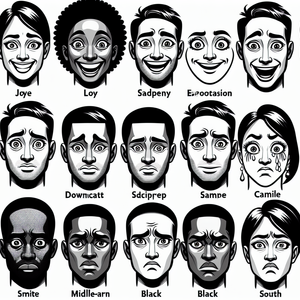Women at the Helm: Female Leaders in Boston's Music Companies

The rise of women in leadership roles within Boston's music companies is a testament to the changing dynamics of the music industry. Women like Tanya Donelly, co-founder of the influential indie label 4AD and member of iconic bands such as Throwing Muses and Belly, have made significant contributions not only through their creative talents but also by mentoring emerging artists. Tanya's journey showcases how women are not just participants but are pivotal in the decision-making processes that shape the music scene. Her influence has extended beyond her own music to foster a new generation of artists who benefit from her experience and advocacy. Another inspiring figure is Keri Smith, the founder of a successful local recording studio known as The Record Co. Keri faced numerous challenges in a field where female engineers and producers are often underrepresented. In her interview, Keri discusses the importance of creating a supportive environment for young women aspiring to enter the industry. Her commitment to mentorship and education highlights the need for more female role models in technical roles, encouraging the next generation of talent to pursue careers in music production and engineering.
Unique Perspectives and Innovations
Women in leadership positions often approach challenges with a fresh perspective, bringing innovative ideas to the table. For instance, Sarah McCoy, a music supervisor and consultant, emphasizes the importance of diversity in music curation. Her work focuses on elevating underrepresented voices and ensuring that the music produced reflects the rich tapestry of Boston's cultural landscape. Sarah's insights reveal how women leaders can significantly influence the music that reaches audiences, promoting inclusivity and representation. Additionally, the rise of female-led independent labels has introduced new genres and styles to the forefront. For example, Femme Fatale Records, founded by a group of passionate female artists, is dedicated to amplifying the voices of women in music. Their commitment to supporting female artists ensures that diverse narratives are shared, enriching the overall music experience for listeners. This label has become a platform for emerging female artists to showcase their talents, contributing to a more balanced representation in the music industry.
Challenges and Triumphs
Despite the progress, female leaders in Boston's music industry continue to face challenges. Gender bias, pay disparity, and work-life balance remain significant hurdles. In her interview, Emily Grace, the CEO of the Boston Calling Music Festival, discusses her experiences advocating for equal pay and opportunities for women in the industry. Emily’s determination to create equitable working conditions for all artists reflects a broader movement within the industry to address systemic issues. However, these challenges have not deterred them; instead, they have fueled a drive for change. The establishment of networks and organizations, such as Women in Music Boston, provides women with resources, support, and a platform to share their experiences. These initiatives foster a sense of community and collaboration, empowering women to thrive in an often-challenging environment. Events such as workshops, panel discussions, and networking opportunities have helped raise awareness about the unique challenges women face in the industry, encouraging more women to take on leadership roles.
The women leading Boston's music companies are at the forefront of a cultural shift that is redefining the industry. Their stories of resilience, innovation, and leadership provide inspiration and serve as a powerful reminder of the importance of diversity in all creative fields. As these female leaders continue to break barriers and challenge norms, they pave the way for future generations of women in music. By supporting and amplifying their voices, we can ensure that the music industry becomes a more inclusive and representative space for all. The evolution of Boston's music scene is not just a tale of sound; it is a symphony of diverse voices working together to create a richer, more vibrant cultural identity.
Music Production Manager
The Record Co., Berklee College of Music
Core Responsibilities
Oversee the production process for recording sessions, ensuring high-quality sound and efficient workflow.
Collaborate with artists, sound engineers, and other stakeholders to align on creative vision and project goals.
Manage budgets and timelines, making adjustments as necessary to meet project requirements.
Required Skills
Proficiency in digital audio workstations (DAWs) such as Pro Tools or Logic Pro.
Strong organizational and communication skills for coordinating teams and schedules.
Experience in music production or a related field, along with a degree in music production or sound engineering preferred.
Common Employers
Recording studios
Independent labels
Music production companies
Music Supervisor
Core Responsibilities
Curate and license music for various media, including films, television shows, and commercials.
Collaborate with directors and producers to select appropriate tracks that enhance the narrative and emotional impact.
Negotiate licensing agreements and manage relationships with artists, labels, and rights holders.
Required Skills
In-depth knowledge of music genres, artists, and the music industry landscape.
Strong negotiation skills and the ability to work under tight deadlines.
Experience with music licensing and legal aspects of the industry, often requiring a background in law or business.
Common Employers
Film and television production companies
Advertising agencies
Independent music supervision firms
Artist Development Coordinator
Core Responsibilities
Support emerging artists in their career growth, providing guidance on branding, marketing, and music production.
Develop and implement strategies for promoting artists' music through various channels, including social media and live performances.
Work closely with record labels and management teams to ensure artists have the resources they need to succeed.
Required Skills
Strong interpersonal and networking skills to build relationships within the industry.
Knowledge of digital marketing strategies and tools to promote artists effectively.
Previous experience in artist management, music marketing, or a related area.
Common Employers
Independent labels
Artist management firms
Music incubators
Sound Engineer
Core Responsibilities
Set up and operate sound equipment for live events, recording sessions, and broadcasts.
Mix and edit audio tracks to achieve a polished final product, ensuring clarity and quality.
Collaborate with artists and producers to understand their sound preferences and technical requirements.
Required Skills
Proficiency in sound engineering software and hardware, including microphones, mixing boards, and recording equipment.
Technical problem-solving skills and the ability to work efficiently under pressure.
A background in audio engineering or related fields, often requiring a degree or certification.
Common Employers
Recording studios
Live event production companies
Broadcasting networks
Music Marketing Specialist
Core Responsibilities
Develop and execute marketing campaigns for musicians and music-related events to engage audiences and increase visibility.
Analyze market trends and audience data to tailor strategies that resonate with target demographics.
Coordinate social media promotions, press releases, and other marketing materials to enhance artists' profiles.
Required Skills
Strong understanding of digital marketing tools and analytics, including SEO and social media strategies.
Excellent written and verbal communication skills for crafting compelling messages.
Experience in the music industry or marketing, with a degree in marketing, communications, or a related field preferred.
Common Employers
Record labels
Music festivals
Marketing agencies focused on the entertainment sector


